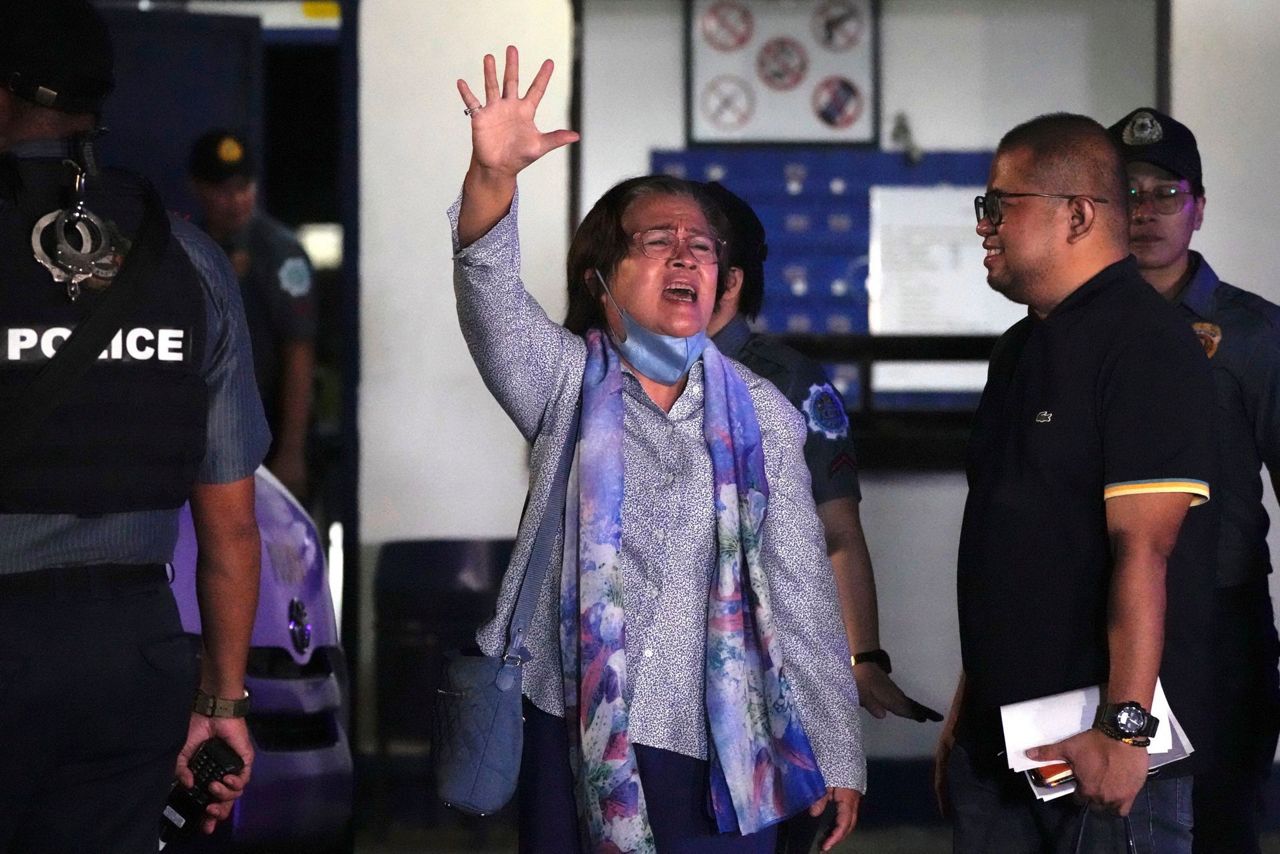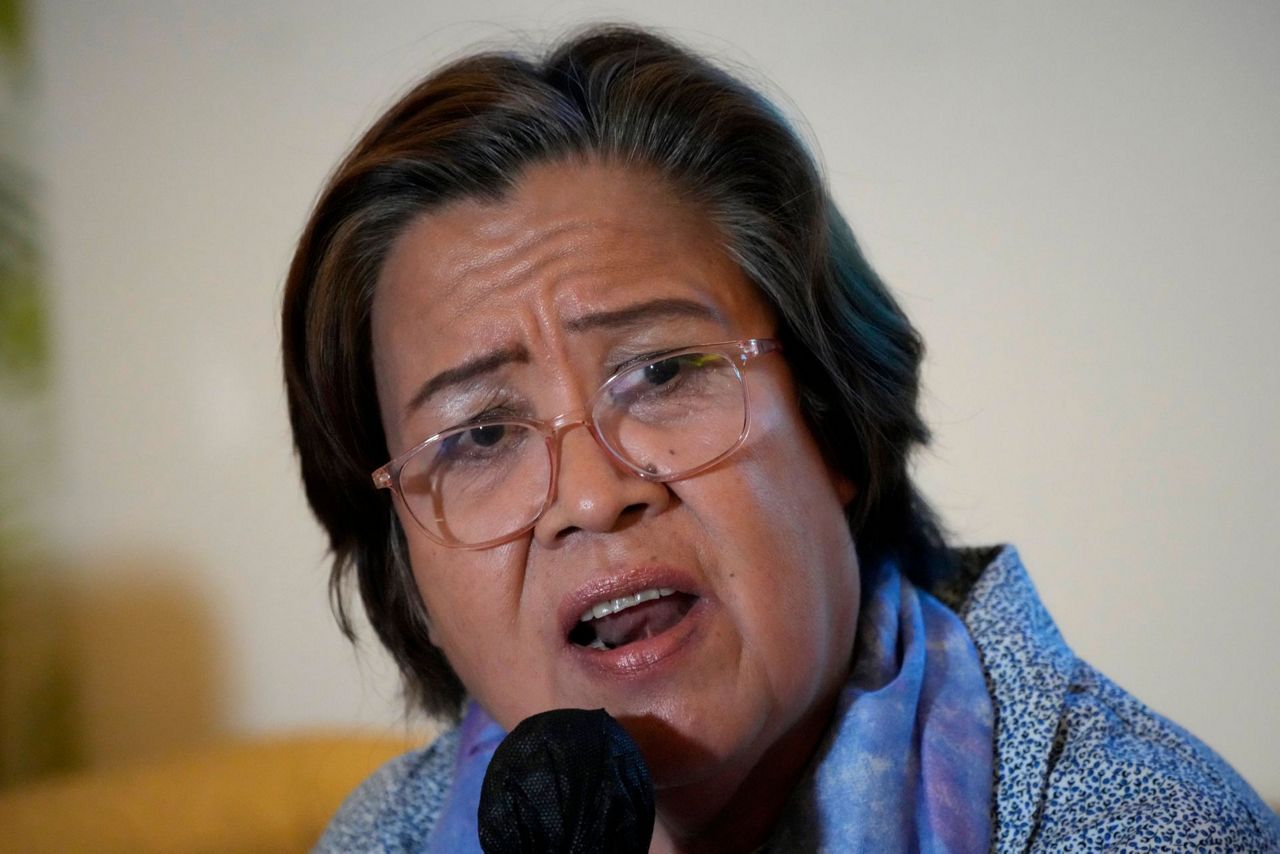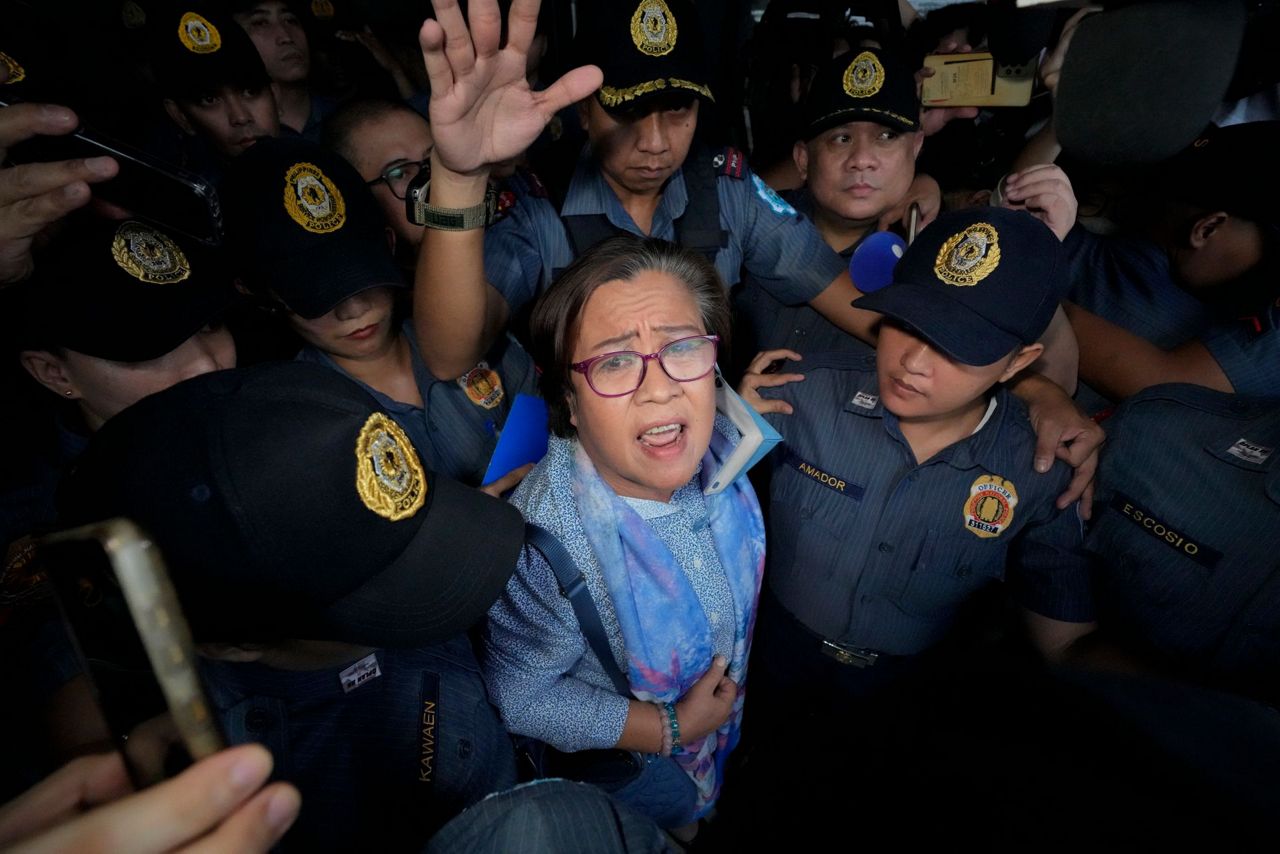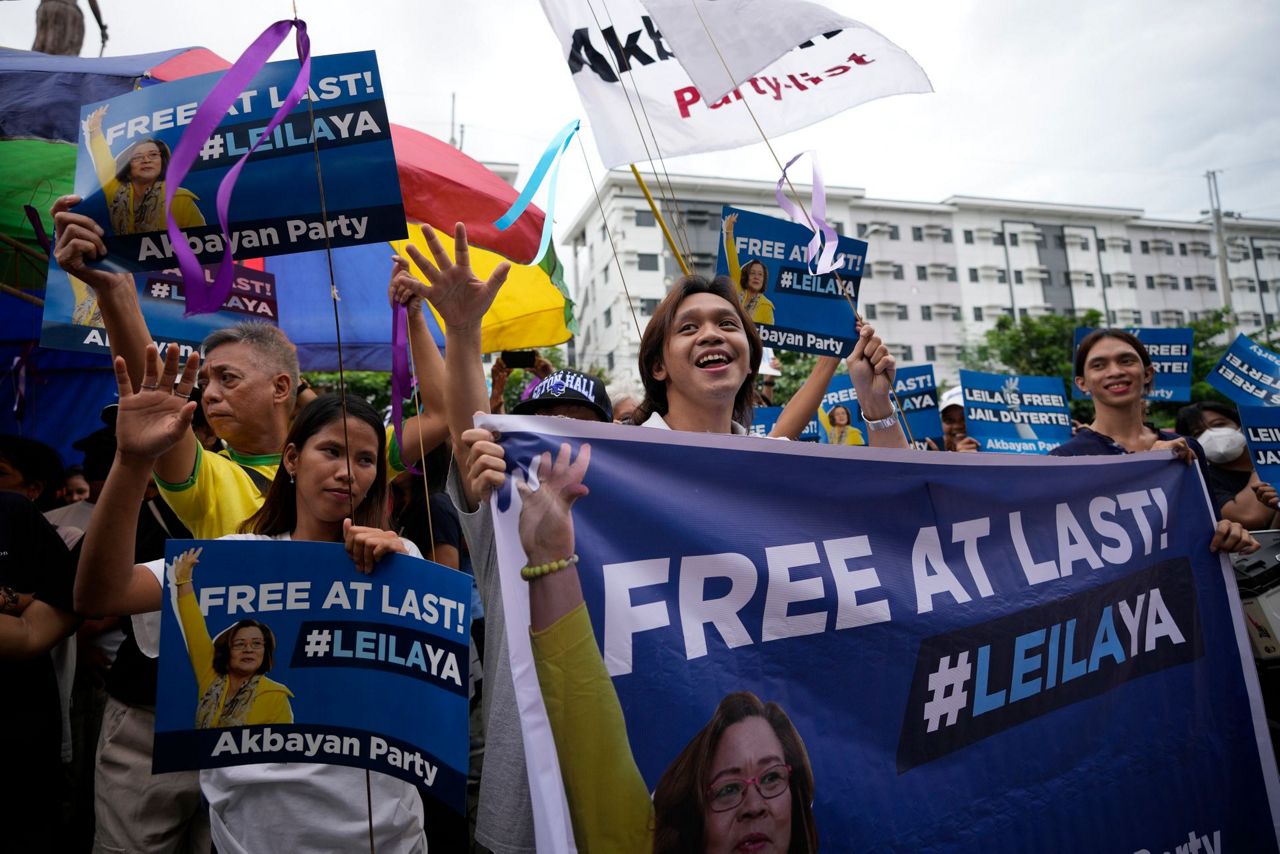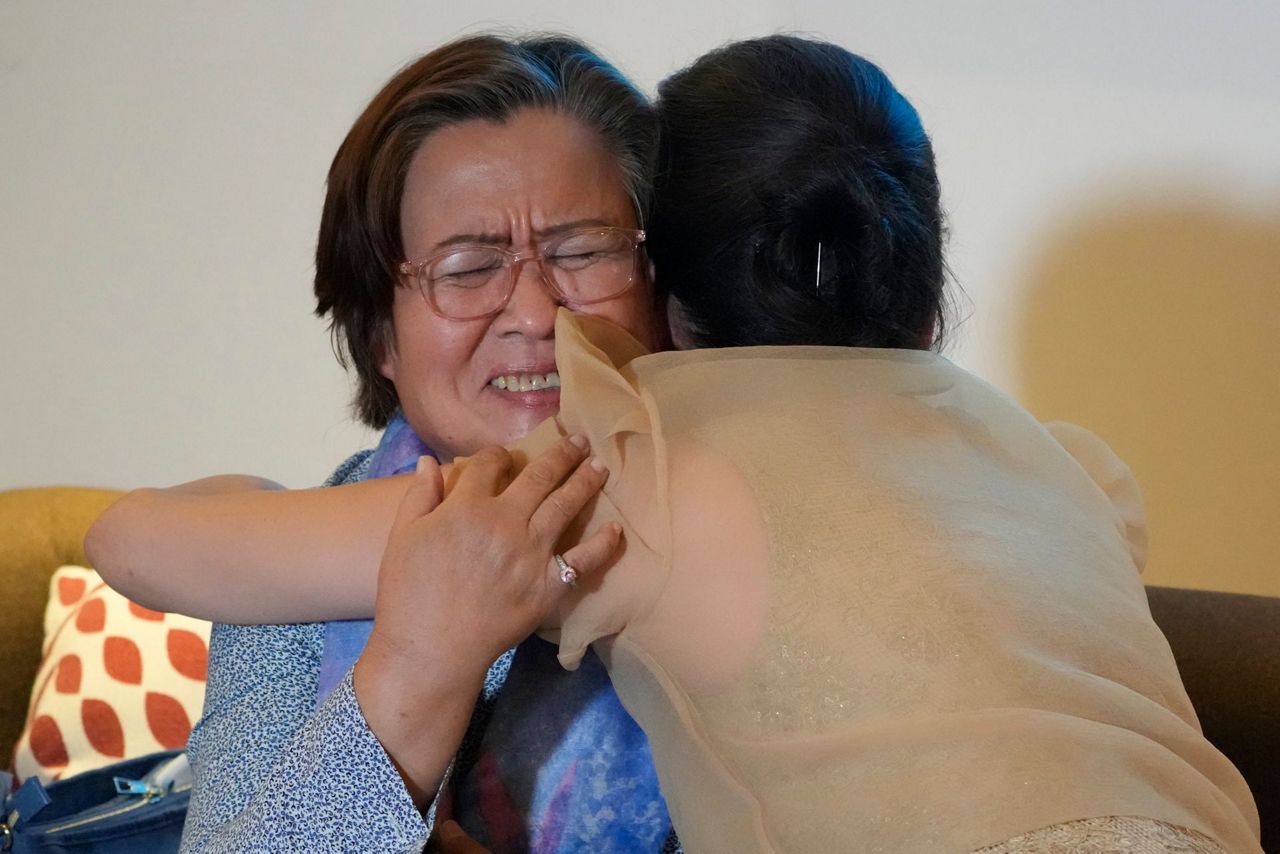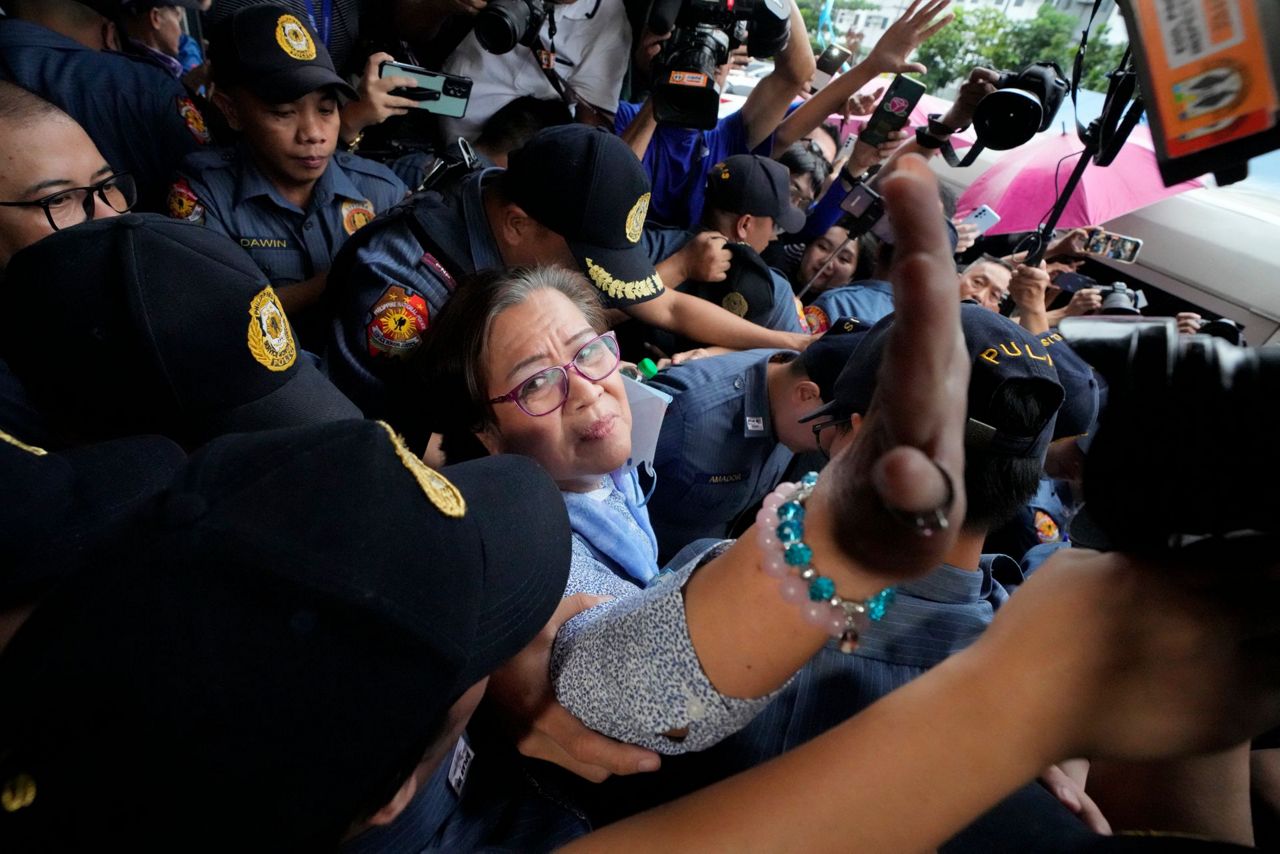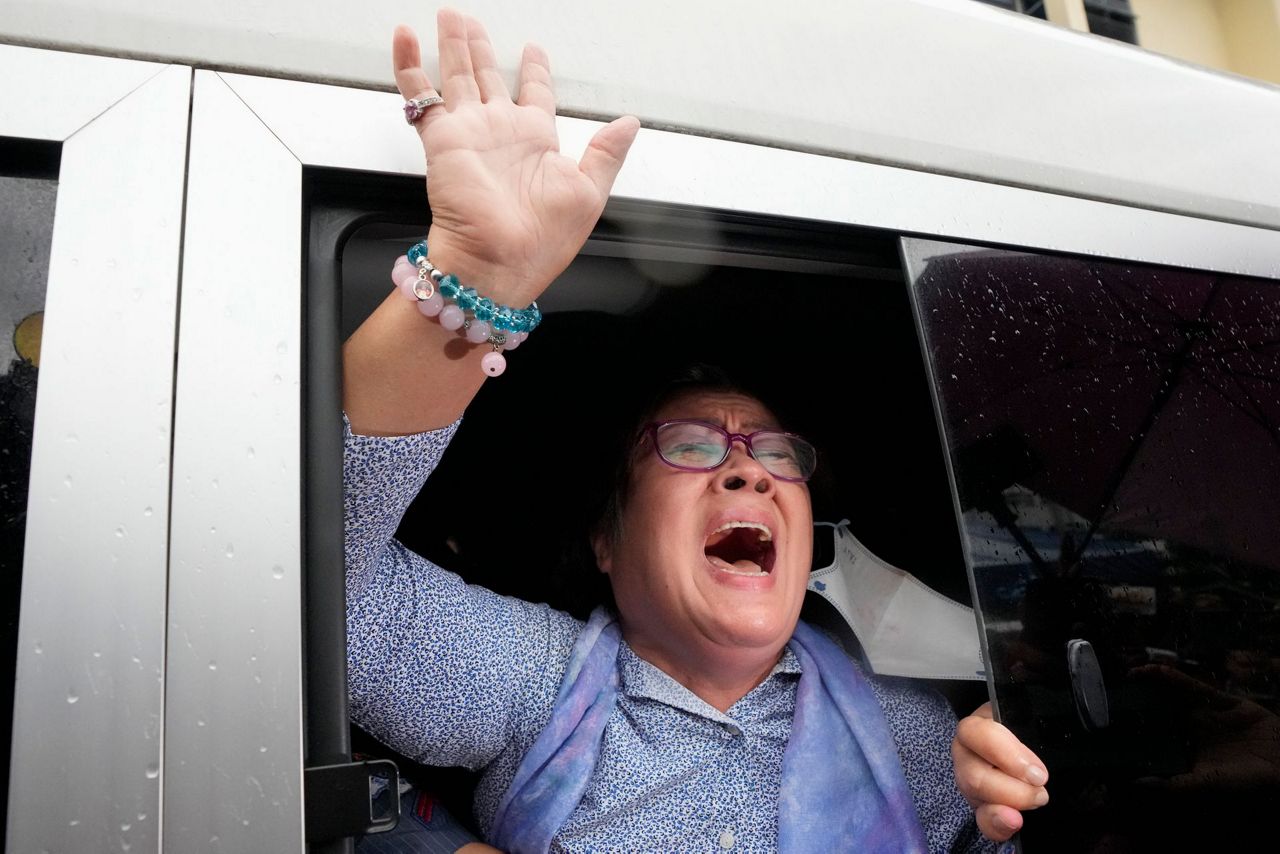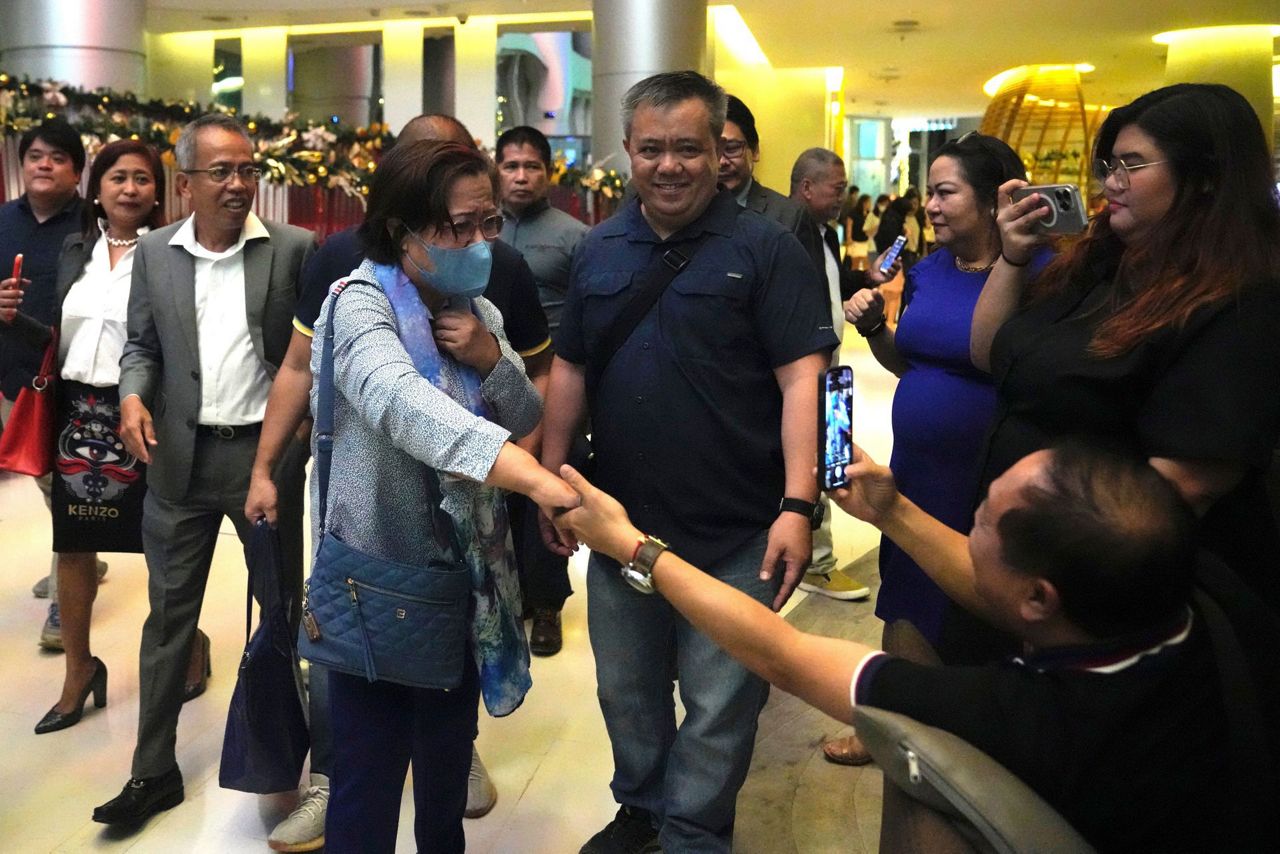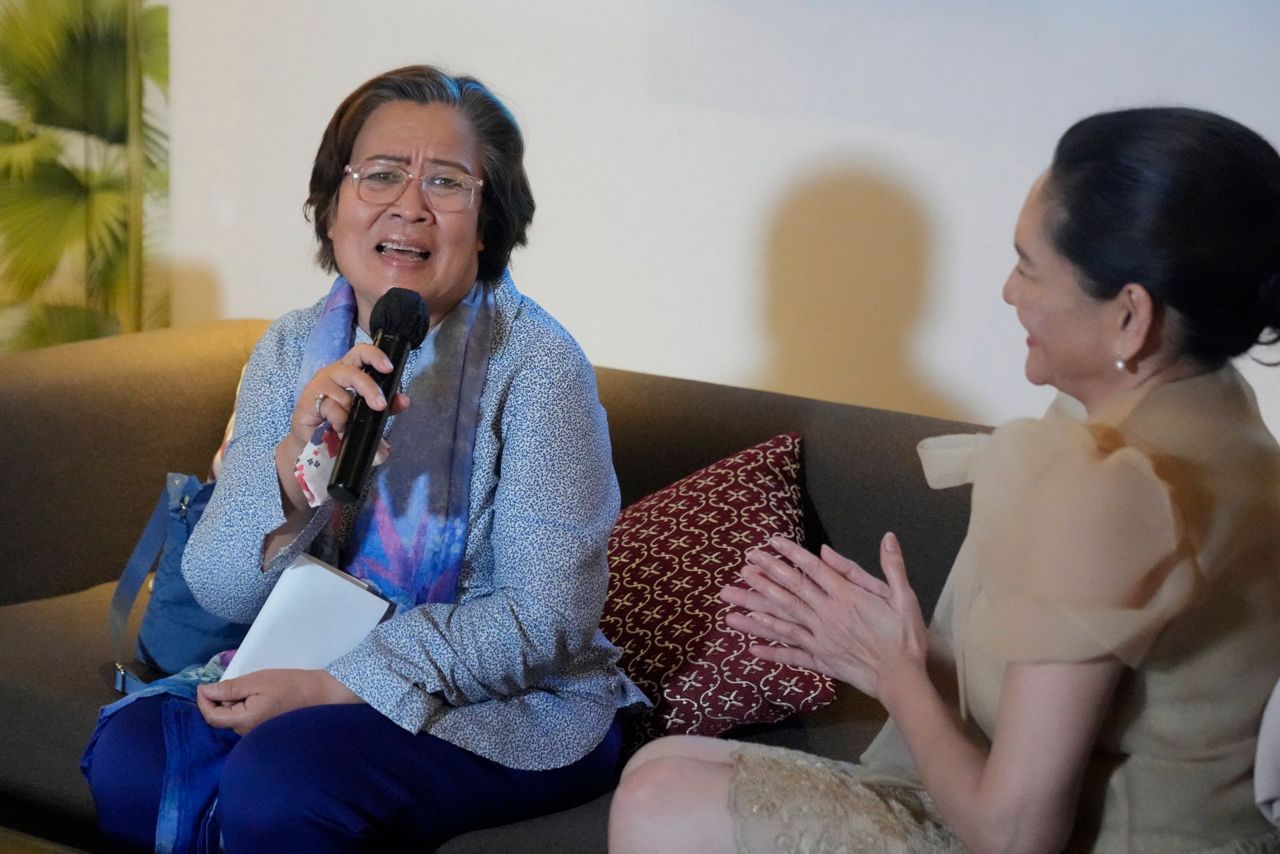MANILA, Philippines (AP) — A Philippine court on Monday freed on bail a former senator jailed more than six years ago on drug charges she said were fabricated to silence her investigation of then-President Rodrigo Duterte’s brutal crackdown on illegal drugs.
The European Union Parliament, some American lawmakers and United Nations human rights experts have long demanded the release of Leila de Lima, who was detained as an opposition senator in February 2017 in what they called political persecution by Duterte and his allies and a major blow to Philippine democracy.
Duterte, whose stormy six-year term ended in June last year, insisted on her guilt, saying witnesses testified she received payoffs from imprisoned drug lords.
Regional Trial Court Judge Gener Gito on Monday reversed a decision earlier this year and granted the request of de Lima and four co-accused for bail while being tried in a final drug case. Two other non-bailable drug cases against her have been dismissed.
Dozens of de Lima’s supporters cheered outside after the decision was announced in suburban Muntinlupa city in the capital, where armed police escorts brought her from detention in a security convoy.
“It's really an indescribable feeling. I’m starting from zero the life that they tried to destroy,” de Lima told The Associated Press shortly after her bail was approved. “This is freedom. It’s so precious."
EU Ambassador Luc Veron said freeing de Lima from detention was “a significant step for the rule of law in the Philippines” and expressed hope that the resolution of the remaining charges would be accelerated.
The U.S. State Department welcomed de Lima's release “after nearly seven years of detention on politically motivated drug charges.” Noting that two cases already were dropped against her, spokesman Matthew Miller said the U.S. urged the Philippines to resolve the remaining case "in a manner that is consistent with its international human rights obligations and commitments."
De Lima immediately called her ailing 91-year-old mother and, with her voice breaking, told her she was coming home.
Facing a throng of cameras, de Lima later thanked her family, lawyers, supporters, the judge and the administration of President Ferdinand Marcos Jr. “for respecting the independence of the judiciary and the rule of law."
“It hurts to be imprisoned when you are innocent,” she said. “But I don’t want to be sad or bitter today. This is a moment of triumph, joy and also of thanksgiving."
De Lima was set free later Monday after paying the 300,000-peso ($5,357) bail and securing police and other clearances. At a news briefing, she refused to say if she was considering legal steps against Duterte. “God bless him, he knows what he did to me,” de Lima said.
“It's a long human rights nightmare that has ended,” Catholic priest Fr. Robert Reyes, a key de Lima supporter, said at the court. “But there is still a lot of work to do to exact accountability for what happened to her.”
As the chief of the country’s Commission on Human Rights in 2009, de Lima led an investigation into widespread killings of drug suspects under then-Mayor Duterte in southern Davao city. She failed to find any witnesses who were willing to testify publicly against him. She then served as the country’s justice secretary.
In 2016, Duterte won the presidency by a wide margin on an anti-crime platform and de Lima was elected to the Senate and pursued an investigation into his campaign against illegal drugs. Authorities built cases against her, obtaining testimonies from imprisoned drug lords, and placed her under arrest.
According to police records, more than 6,000 mostly poor suspects were killed under Duterte’s drug crackdown as president. Human rights groups say the death toll was considerably higher. The International Criminal Court has been investigating the killings in what an ICC prosecutor said could be a case of crimes against humanity.
Although isolated for years from the outside world in a maximum-security detention center in the main police headquarters in the capital, de Lima continued issuing hundreds of handwritten statements as a senator, mostly her criticisms of Duterte’s governance and thoughts on strengthening human rights.
De Lima ran for re-election in May last year under the main opposition bloc, but the trial court rejected her request to be allowed to campaign. She instead sent a life-size cutout image which allies displayed on the campaign trail, but she lost.
She blamed Duterte, who she said “demonized” her and subjected her to misogynistic attacks that she was unable to address from jail.
Calls for her immediate release mounted in October last year after she was taken hostage in a rampage by three Islamic State group-linked Muslim militants, who were killed by police guards in a failed attempt to escape from jail.
De Lima said one of the hostage-takers tied her hands and feet, blindfolded her and pressed a weapon in her chest and demanded access to journalists and a military aircraft to escape. The man threatened to kill her until he was gunned down by a police negotiator at close range, officials said.
___
Associated Press journalists Joeal Calupitan and Aaron Favila contributed to this report.
Copyright 2023 The Associated Press. All rights reserved. This material may not be published, broadcast, rewritten or redistributed without permission.



